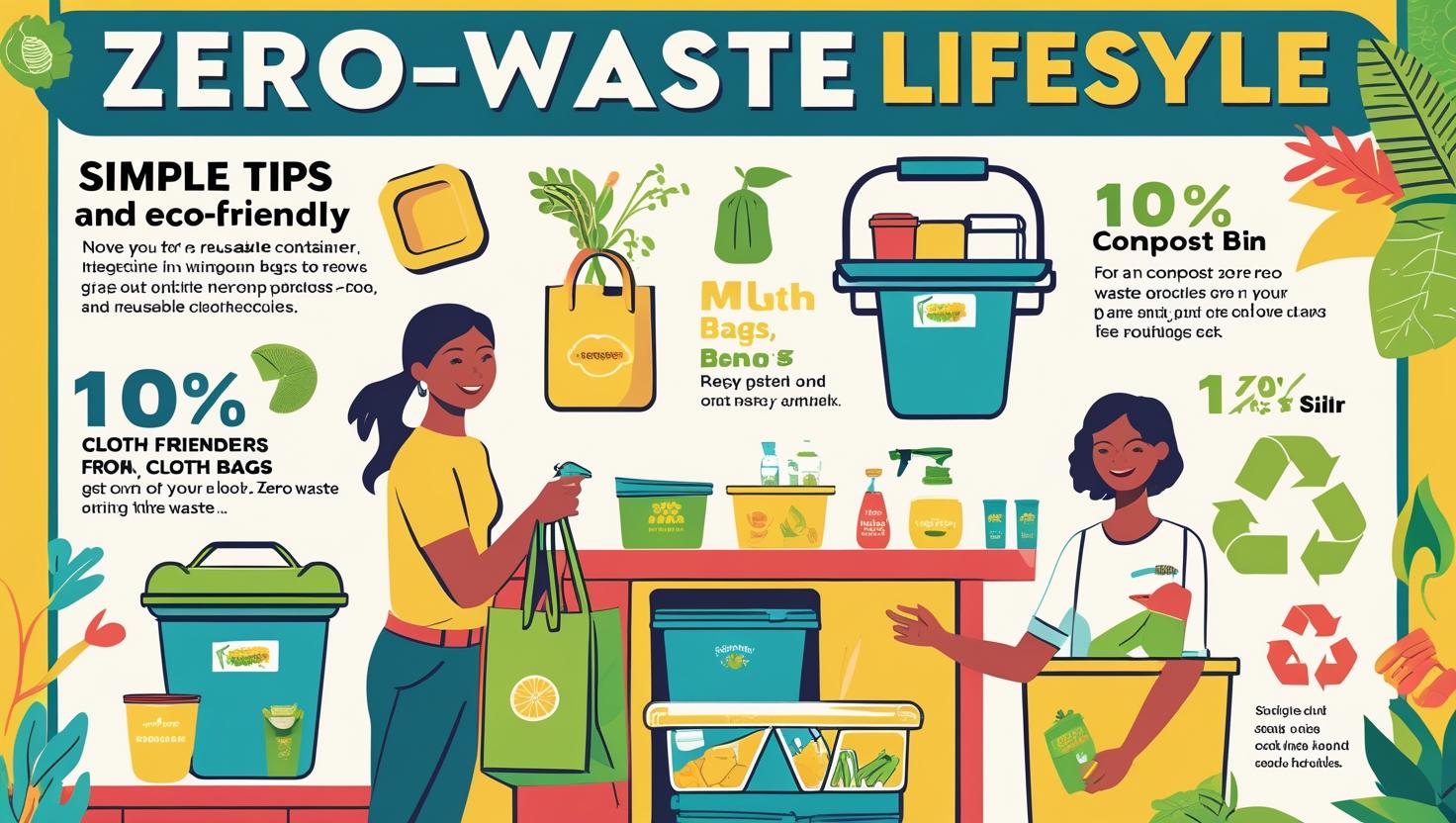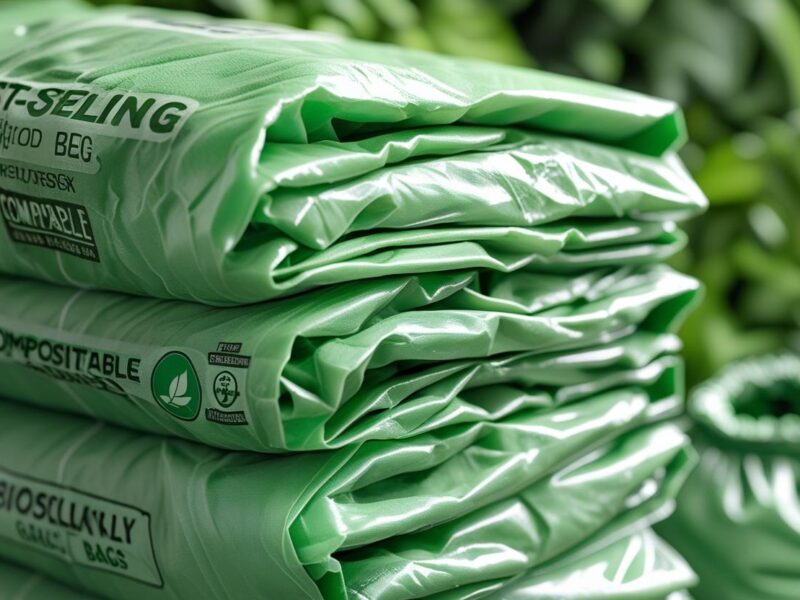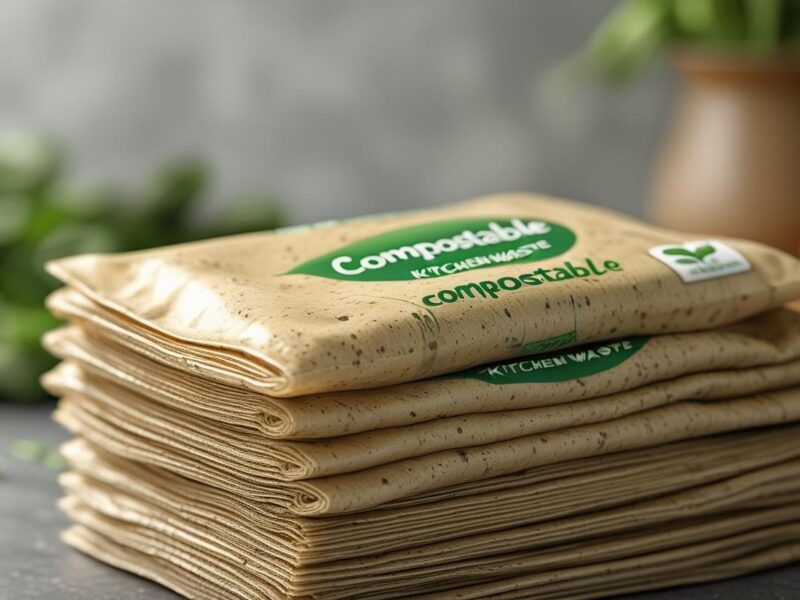Every year, billions of tons of waste end up in landfills and oceans, polluting our environment and harming wildlife. Adopting a zero waste lifestyle can drastically reduce this problem by minimizing the trash we produce daily.
In this article, we will explore what a zero waste lifestyle means, why it matters, and practical steps to live waste-free with ease.
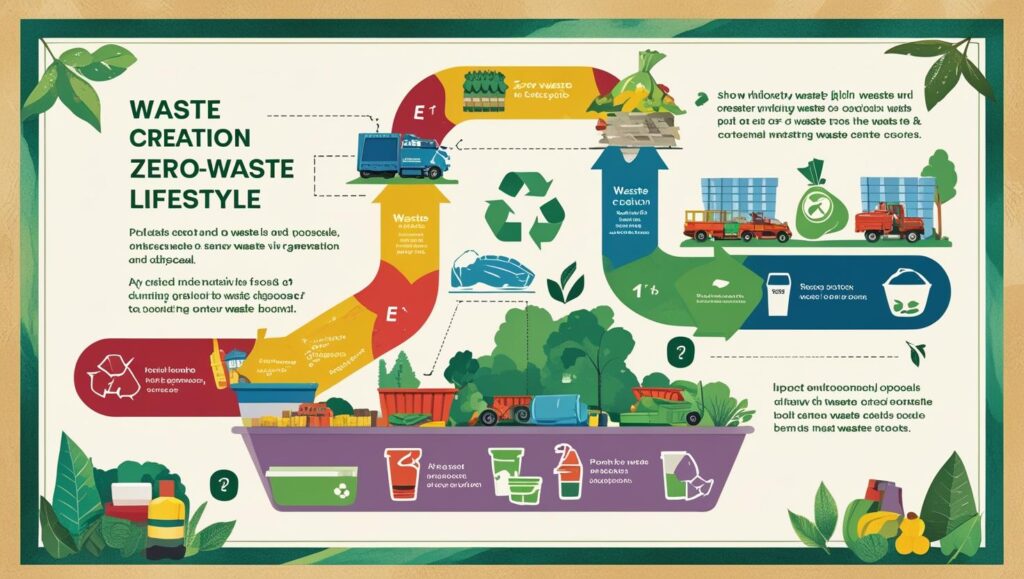
What Is a Zero Waste Lifestyle? — Understanding the Problem
A zero waste lifestyle aims to send no waste to landfills or incinerators by reducing, reusing, recycling, and composting as much as possible. It challenges the throwaway culture and encourages mindful consumption.
- Plastic pollution is one of the biggest global issues today, with millions of plastic pieces polluting oceans.
- Food waste contributes significantly to greenhouse gas emissions.
- Landfills release harmful chemicals into soil and water.
Benefits of zero waste living:
- Protects the environment by reducing pollution
- Saves money by buying less and reusing more
- Promotes healthier living by avoiding harmful packaging chemicals
Top 5 Practical Zero Waste Products to Start With
1. Reusable Shopping Bags
- Features: Made from cotton or recycled materials
- Pros: Durable, washable, reduces plastic bag waste
- Cons: Need regular cleaning
- CTA: Carry one with you to avoid single-use plastic bags.
2. Stainless Steel Water Bottles
- Features: BPA-free, insulated to keep drinks hot or cold
- Pros: Long-lasting, easy to clean
- Cons: Heavier than plastic bottles
- CTA: Ditch disposable bottles and refill all day.
3. Beeswax Food Wraps
- Features: Natural, reusable alternative to plastic wrap
- Pros: Breathable, biodegradable, washable
- Cons: Not suitable for raw meat storage
- CTA: Wrap your leftovers sustainably.
4. Compost Bin for Kitchen Scraps
- Features: Compact, odor-controlled bins
- Pros: Reduces organic waste, enriches soil
- Cons: Requires regular maintenance
- CTA: Start composting your food scraps today.
5. Refillable Soap and Shampoo Bottles
- Features: Refillable containers to reduce packaging waste
- Pros: Eco-friendly, economical over time
- Cons: Requires planning to refill
- CTA: Switch to refill stations or make your own.
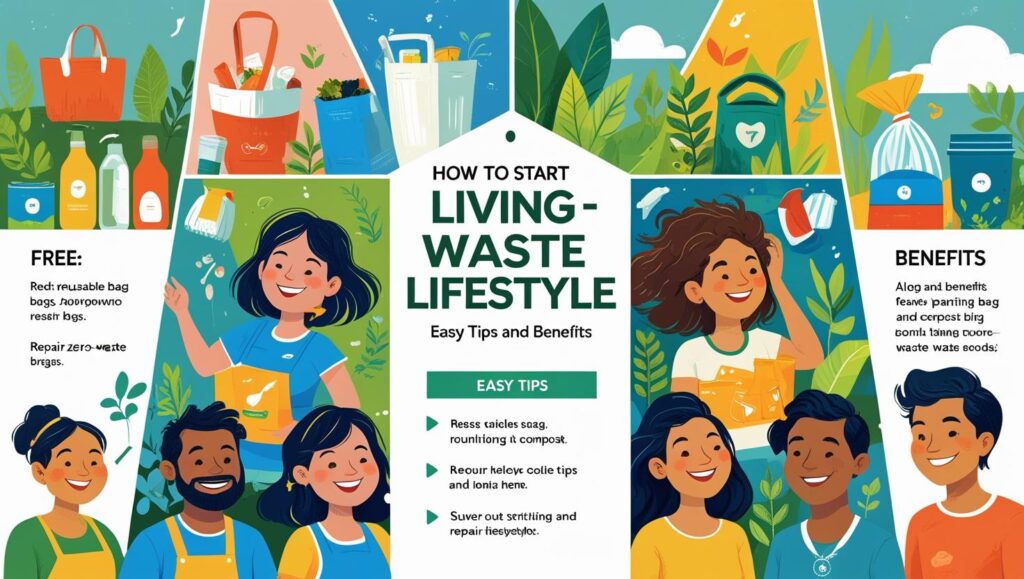
How to Start Living a Zero Waste Lifestyle: Easy Tips and Benefits
- Start Small: Focus on one area such as kitchen waste or personal care.
- Refuse Single-Use Items: Say no to straws, plastic cutlery, and packaging.
- Choose Reusables: Invest in quality reusable items.
- Compost Food Waste: Keep a compost bin to reduce landfill waste.
- Shop Mindfully: Buy in bulk and avoid over-packaged goods.
Benefits You’ll Notice:
- Less clutter at home
- Savings from buying less disposable items
- Satisfaction of contributing to a healthier planet
Pros and Cons of Zero Waste Lifestyle
| Pros | Cons |
|---|---|
| Environmentally friendly | Initial time investment |
| Saves money in long term | Requires lifestyle adjustments |
| Encourages mindful habits | Some products may be costly |
| Reduces landfill waste | Limited availability in some areas |
Frequently Asked Questions (FAQ)
Q1: Is zero waste living expensive?
A: Initially, some products may cost more, but over time, zero waste living saves money by reducing disposable purchases.
Q2: Can beginners realistically live zero waste?
A: Yes! Start with small changes like carrying a reusable bottle or bag and build habits gradually.
Q3: Where can I buy zero waste products in Bangladesh?
A: Platforms like Daraz, Evaly, and local eco-friendly shops offer a variety of zero waste products.
Conclusion
Living a zero waste lifestyle is more than a trend—it’s a necessary step for protecting our planet and future generations. By making small, consistent changes, you can reduce your environmental footprint and inspire others.
